Whether you’re a seasoned marathoner or a casual jogger, finding the right running shoes for concrete is essential for comfort and performance. Here, we dive into detailed reviews, comparisons, and tips to help you make the best choice.
Why the Right Running Shoes Matter
Concrete surfaces are hard and unforgiving. Running on such surfaces can lead to various issues if you don’t have the proper footwear. The right running shoes cushion your feet, provide support, and prevent injuries. According to a study published by the National Institutes of Health, wearing appropriate footwear can significantly reduce the impact forces on joints and lower the risk of running-related injuries.
Choosing the right pair of shoes can mean the difference between a comfortable run and an injury-ridden experience. In this guide, we highlight the best options available, ensuring you feel confident on your feet, no matter how long your run is.
Top Features to Look for in Shoes for Concrete Running
Cushioning
One of the essential features of running shoes is the cushioning. Proper cushioning absorbs shock and reduces the impact on your joints, making it crucial for runs on hard surfaces like concrete. Look for shoes that offer adequate cushioning types, such as gel, foam, or air units.
Stability and Support
Stability features in running shoes help prevent overpronation and enhance your running form. Shoes with a firm heel counter and supportive midsole structures can help maintain your foot’s natural alignment, especially on uneven surfaces.
Breathability
Your feet need to breathe while you run. Look for shoes made with breathable materials such as mesh that allow airflow, keeping your feet cool and dry.
Weight
Lightweight shoes can enhance performance by reducing the energy needed for each stride. However, they should not compromise cushioning and support.
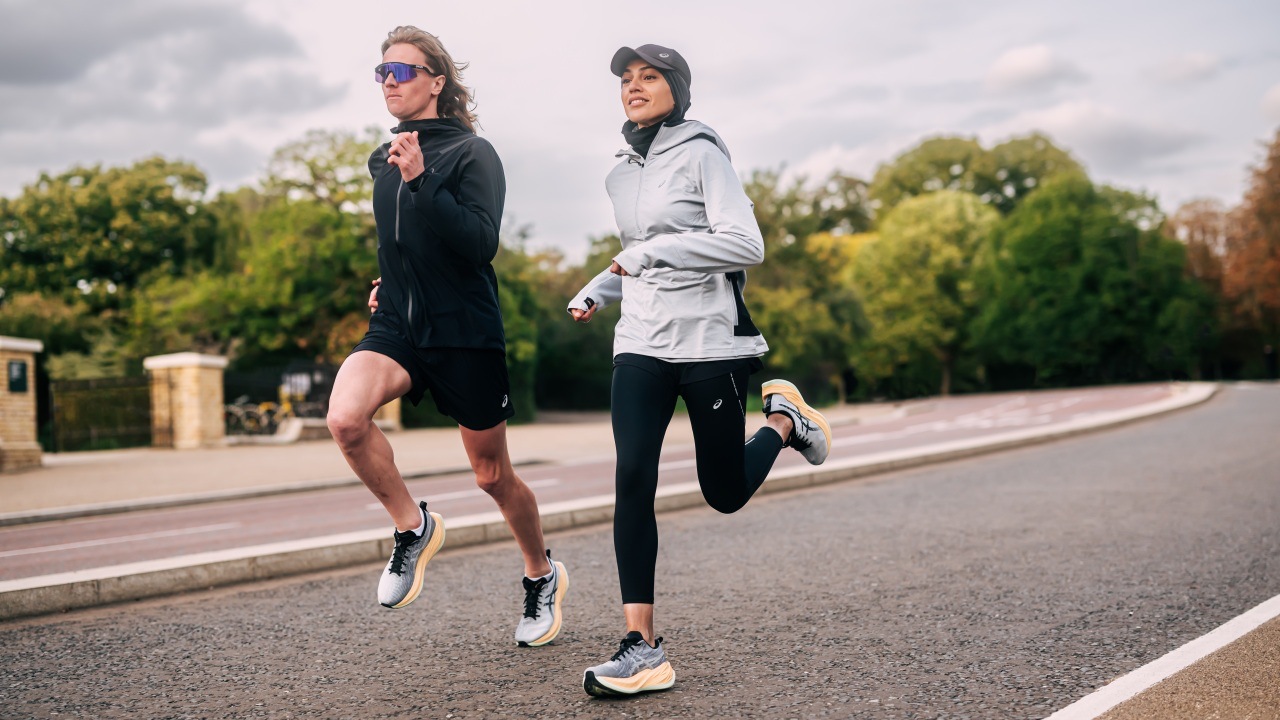
Best Running Shoes for Concrete: Our Top Picks
1. Nike Air Zoom Pegasus 39
The Nike Air Zoom Pegasus 39 is a favored choice for many runners due to its impressive cushioning and responsiveness. The shoe features Zoom Air units for cushioning, which offers a responsive feel while running on concrete. Moreover, its engineered mesh upper provides breathability and a secure fit. Runners have reported that this shoe offers a nearly ‘floating’ sensation when hitting the pavement, making long runs enjoyable.
Pros
- Excellent cushioning and comfort
- Stylish design suitable for casual wear
- Versatile for various running distances
Cons
- Can be pricey for some runners
- May feel narrow for wider feet
Overall, the Nike Air Zoom Pegasus 39 combines performance and style, making it one of the top contenders for those running on concrete.
2. ASICS Gel-Kayano 29
The ASICS Gel-Kayano 29 is known for its stability and support, making it an excellent choice for long-distance runs on concrete. The shoe incorporates ASICS’ signature GEL technology, providing superior cushioning and shock absorption. Many runners have shared stories of how the Kayano has helped them push through their marathon training, offering stability during long miles.
Pros
- Exceptional support for overpronators
- Cushioned midsole for comfort on hard surfaces
- Durable construction
Cons
- Weightier compared to other options
- High price point
With reliable performance and comfort, the ASICS Gel-Kayano 29 stands out as a formidable option for serious runners.
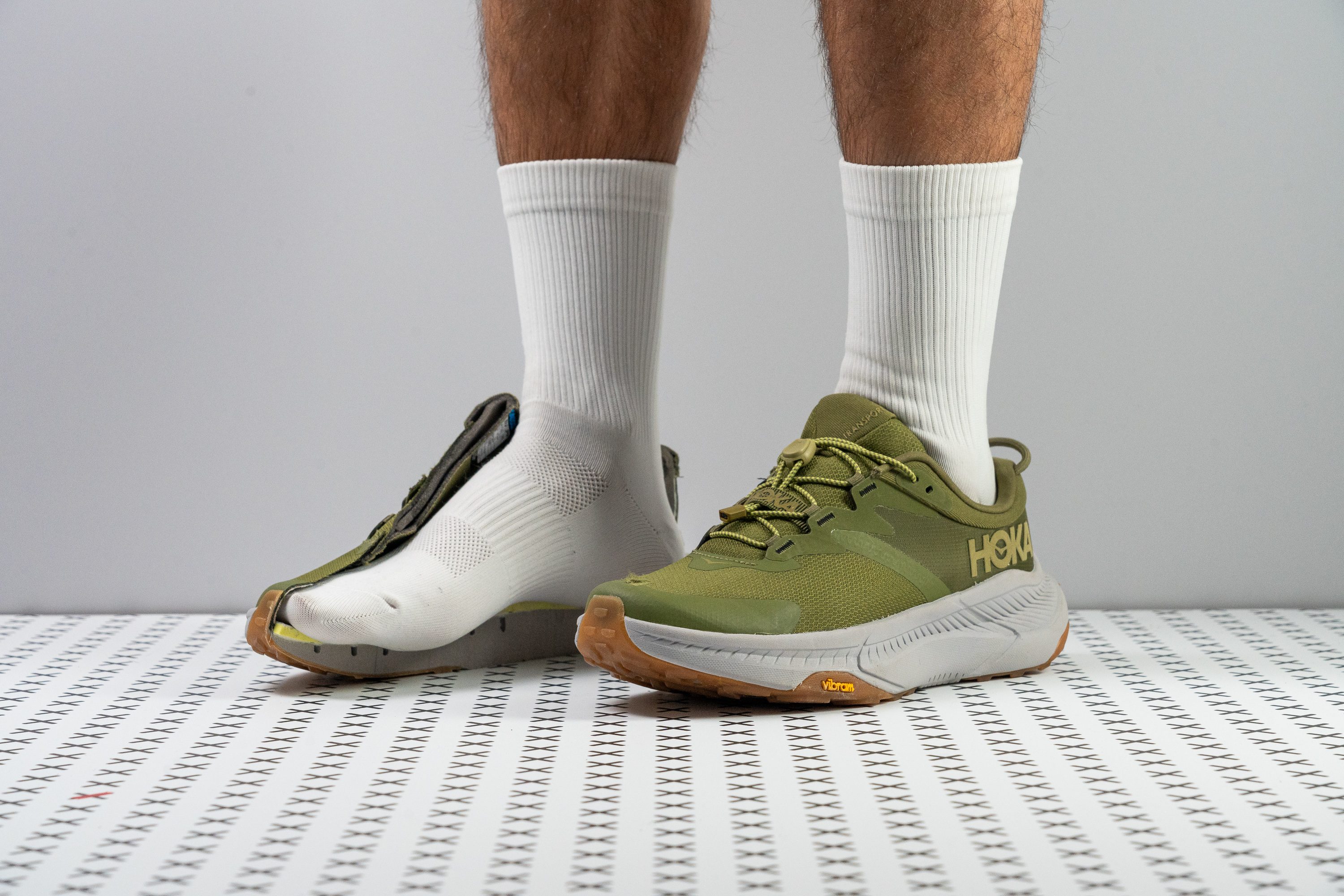
3. Hoka One One Bondi 8
If maximum cushioning is your top priority, the Hoka One One Bondi 8 is a road-running shoe you should consider. It’s recognized for its plush ride and ample cushioning, making it perfect for concrete runners. Users rave about the comfort level during long runs, often forgetting they’re pounding the pavement. It’s an excellent shoe for recovering from injuries and maintaining a comfortable pace.
Pros
- Superior cushioning for long distances
- Wide toe box for comfort
- Good for recovery runs
Cons
- Bulky design may not appeal to everyone
- Less responsiveness compared to lighter shoes
For those who prioritize comfort over speed, the Hoka One One Bondi 8 is definitely a shoe to consider.
4. Brooks Ghost 15
The Brooks Ghost 15 is another excellent choice for concrete running. It offers a perfect balance between cushioning and responsiveness. Runners note that it feels soft yet supportive, making it ideal for those who enjoy a smooth ride on hard surfaces. The 3D Fit Print upper provides an adaptive fit, reducing the chance of chafing and discomfort.
Pros
- Great cushioning for long distances
- Lightweight and responsive
- Flexible design for natural movement
Cons
- May not provide enough support for heavy overpronators
- Some users report durability issues over time
For a dependable all-rounder, the Brooks Ghost 15 consistently hits the mark for runners everywhere.
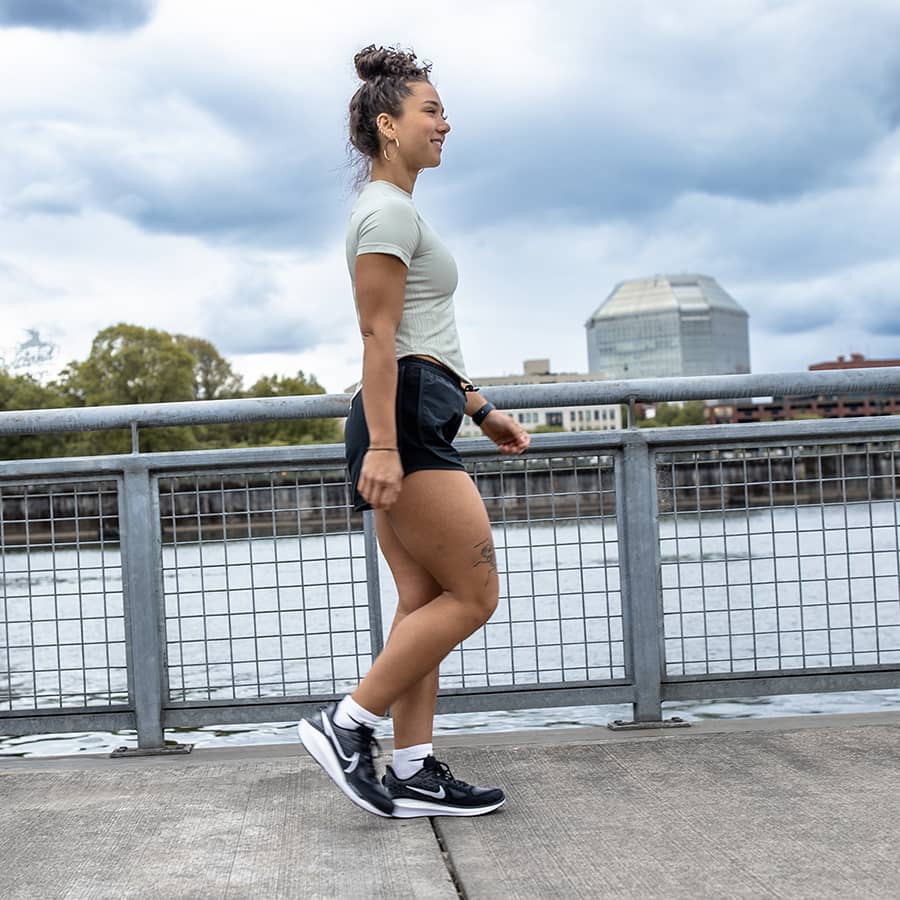
5. New Balance Fresh Foam 1080v12
The New Balance Fresh Foam 1080v12 is known for its plush Fresh Foam midsole, offering a fantastic cushion for concrete runners. Runners appreciate the shoe’s ability to provide comfort during longer runs without sacrificing speed. The shoe’s sleek design also makes it a stylish option for post-run activities.
Pros
- Excellent cushioning and comfort
- Stylish and versatile
- Good traction on various surfaces
Cons
- Can run slightly large, requiring careful size selection
- Pricey compared to competitors
The New Balance Fresh Foam 1080v12 is a fantastic option for anyone looking for both style and substance.
Comparison Table of Top Running Shoes for Concrete
| Brand | Model | Cushioning | Support Type | Weight | Price |
|---|---|---|---|---|---|
| Nike | Air Zoom Pegasus 39 | Moderate | Neutral | 9.5 oz | $130 |
| ASICS | Gel-Kayano 29 | High | Stability | 11 oz | $160 |
| Hoka One One | Bondi 8 | Maximum | Neutral | 10.7 oz | $165 |
| Brooks | Ghost 15 | Moderate | Neutral | 10.1 oz | $140 |
| New Balance | Fresh Foam 1080v12 | High | Neutral | 10.5 oz | $160 |
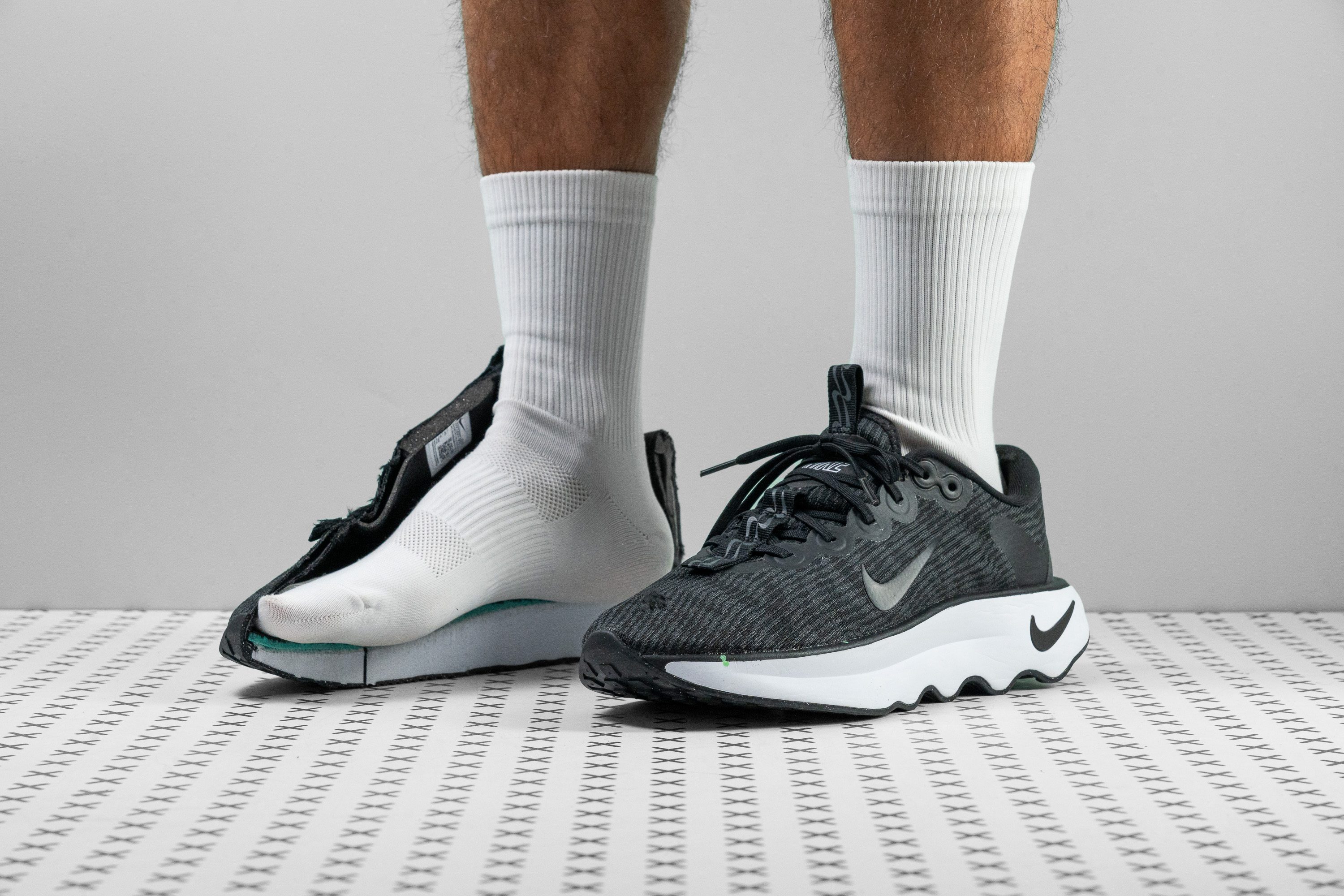
Tips for Choosing Running Shoes for Concrete
Consider Your Foot Type
Understanding your foot type can play a crucial role in selecting the right shoes. Are you a neutral runner, overpronator, or underpronator? Various brands have specific models catering to different foot types. For instance, if you have flat feet, consider stability shoes like the ASICS Gel-Kayano.
Get Properly Fitted
Visiting a running store for a proper fitting can make all the difference. A professional fitting will consider your foot shape, gait, and running style, ensuring you leave with a pair that feels just right.
Test Before You Buy
Don’t be afraid to test shoes before purchasing them. Many running shoe stores have treadmills or allow short jogs outside. This can help you gauge the comfort level and how well the shoes fit your feet.
Replace Worn-Out Shoes
Regularly check the condition of your running shoes. Generally, shoes should be replaced every 300-500 miles. Worn-out shoes can lead to injuries, especially when running on hard surfaces like concrete.
Real-World Footwear Experiences
Case Study: Sarah’s Journey with Concrete Running
Sarah, a dedicated runner from Florida, began her journey with the ASICS Gel-Kayano. After experiencing knee pain during her runs on concrete, she discovered the importance of proper support and cushioning. By switching to a stability shoe, Sarah minimized her discomfort, finding that the shoe’s shock absorption significantly improved her long-distance runs.
Tom’s Marathon Training
Tom, a marathon enthusiast, opted for the Nike Air Zoom Pegasus 39. He loved the shoe’s lightweight design for speed workouts but noted an improvement in overall comfort on longer runs as well. By logging over 700 miles in them, Tom felt that this shoe allowed him to perform at his best while keeping the strain on his joints minimal.
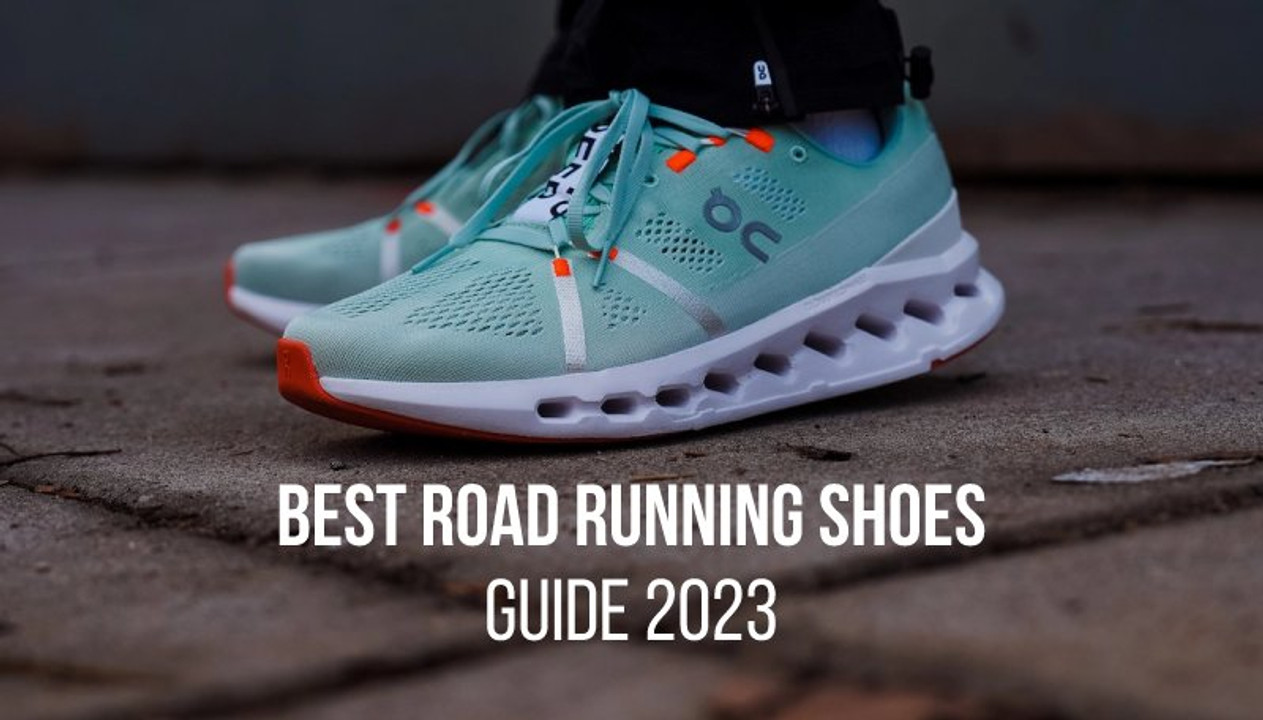
FAQs About Running Shoes for Concrete
1. What type of running shoes are best for concrete?
Running shoes with maximum cushioning and shock absorption are best for concrete. Look for shoes with advanced technologies that minimize impact on joints.
2. Is it necessary to have specific shoes for concrete running?
While it’s not mandatory, using shoes designed for concrete running can help enhance comfort, reduce the risk of injury, and improve performance.
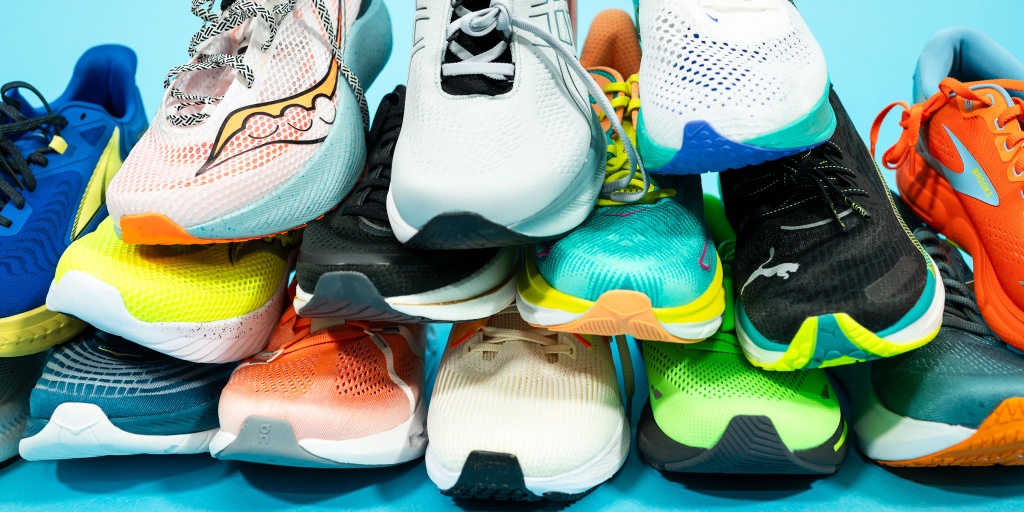
3. How do I know when to replace my running shoes?
Monitor your shoes’ mileage; typically, they should be replaced every 300-500 miles. Look for signs of wear, such as flattening of the midsole, holes in the upper, or a lack of grip.
4. Can I use trail running shoes on concrete?
While you can use trail shoes on concrete, they may not offer the same comfort and cushioning as dedicated road running shoes. Their traction is designed for uneven surfaces and may feel less comfortable on hard ground.
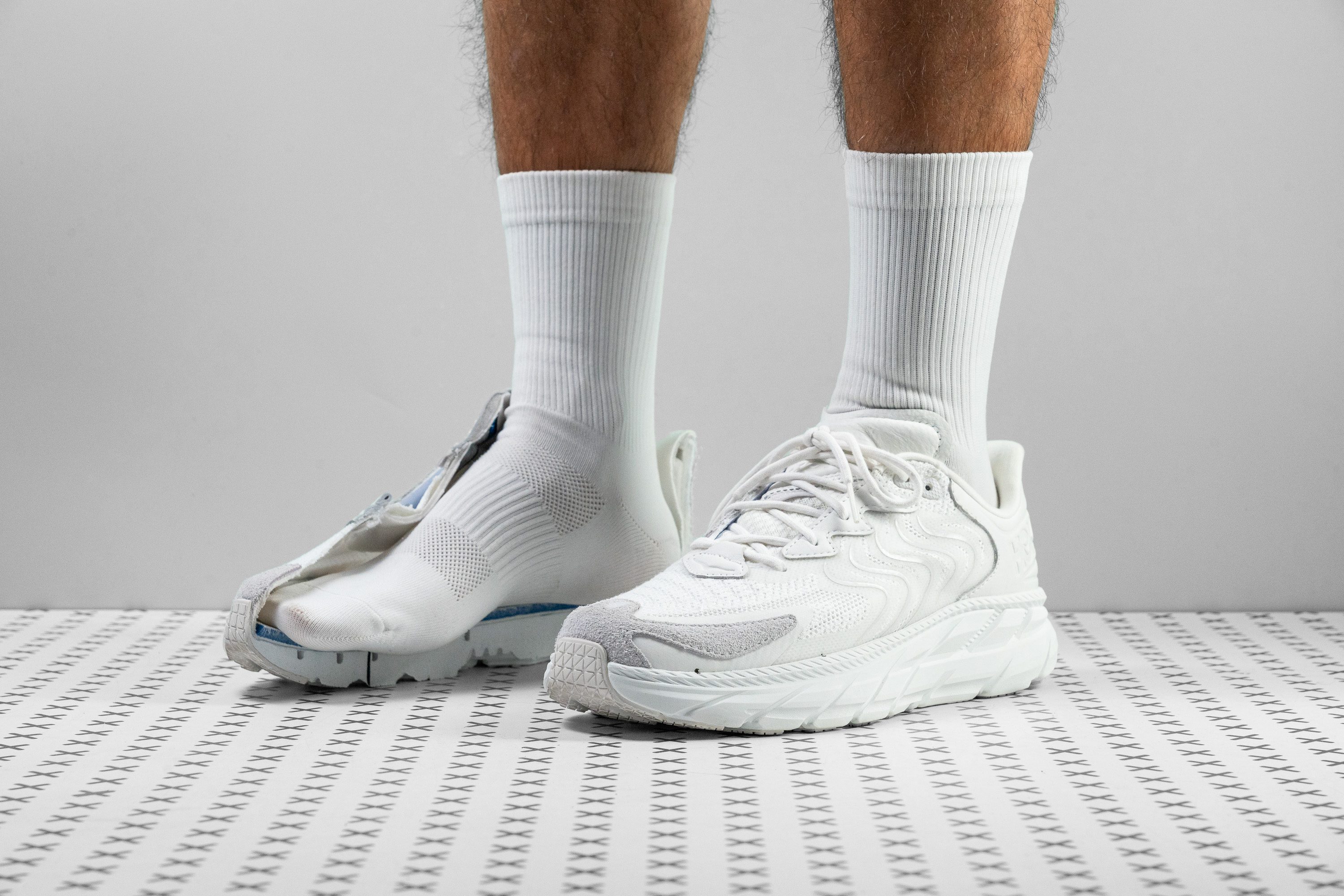
5. What features should I prioritize for running on concrete?
Prioritize cushioning, support, stability, and breathability in your shoes. The right combination ensures comfort and reduces the risk of injuries.
6. Are more expensive running shoes actually better?
Not necessarily. Price often reflects brand marketing, technology, and materials. It’s essential to find a shoe that fits your foot well and meets your running needs, regardless of price.
7. How often should I run in new shoes before deciding?
It’s recommended to run 20-30 miles in new shoes before determining if they’re the right fit for you to ensure comfort and support.
8. Can running shoes for concrete be used for other surfaces?
Yes, running shoes for concrete can be used on other surfaces. However, the performance may not be optimized for trail or track running.
9. What are the benefits of using neutral shoes?
Neutral shoes benefit runners with a natural foot motion, providing adequate cushioning without additional support, allowing for a natural stride.
10. How important is breathability in running shoes?
Breathability is essential as it keeps your feet cool and dry, reducing the risk of blisters and discomfort during your runs.